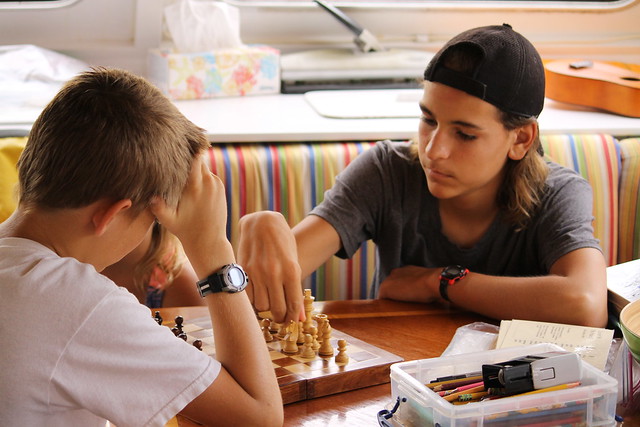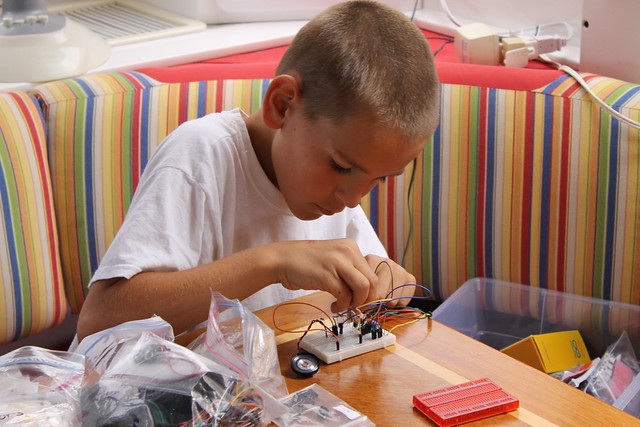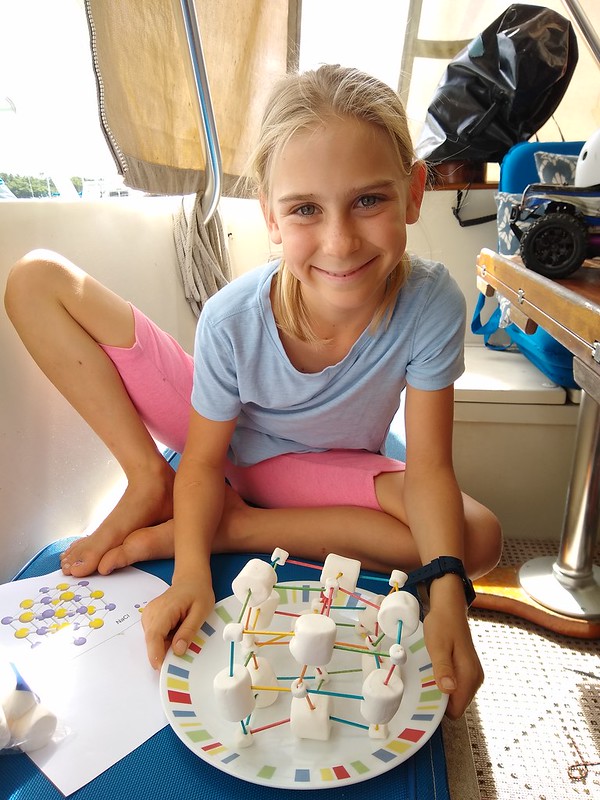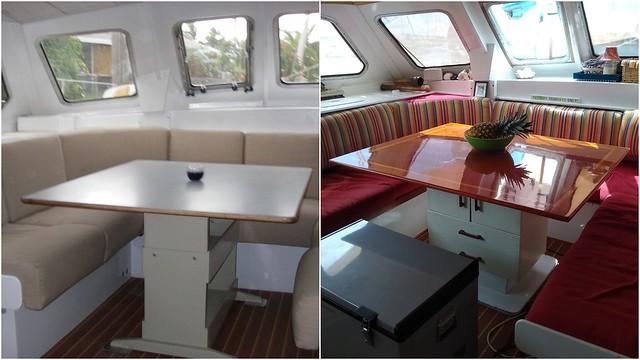Let me start off by saying that doing school at home is not the same thing as homeschooling.
Now that we’ve gotten that out of the way, I want you to know how much I respect and support the families which have been plunged headlong into the new “adventure” (a.k.a. what happens when something goes wrong) of educating their children. Even if your child is sitting in front of a computer screen going to a virtual classroom, you are still at home with him, her, or them, ensuring that they get what they need to succeed in life. Whether you homeschool, help your children with homework, pay for tutoring, or provide a computer so they can receive instruction, the bottom line is that we all care about the same thing.
Many people have said to me, about our homeschooling five kids on a boat, “Better you than me. If I were at home all day with my kids, I would kill them!” When they closed the schools in March, this was my first thought. So…how’s it going? Maybe you are discovering what we did 15 years ago when our own homeschool journey started: homeschooling is not so much about education as it is about navigating human relationships, loving each other when you don’t feel like it, and conflict resolution.
When your kid goes to school, you have the luxury of forgetfulness: your kid wakes up on the wrong side of the bed, you drop him/her off at school, the teacher deals with the grumpy student, and 10 hours later the bad morning is a distant memory. Not so at home. First you have to deal with the bad attitude (theirs and yours) and then you can think about instruction and learning. By the time you’ve solved all the personal problems, it’s time for lunch! (I speak only partly in jest…)
Of course, with the help of technology, not all parents are required to add curriculum planning to the perfect storm of working from home, managing a household, cooking, cleaning, and maybe recovering from an illness. So, on the one hand, you have support from your child’s school, but on the other, you have very little freedom about how/when schoolwork gets done. By now, you have probably googled “homeschool ideas” enough to know that this is a diverse subject; each homeschool is as unique as the family who chose to do it. In our local homeschool community, we have everything from unschoolers to those who buy curriculum-in-a-box.
Our family is somewhere in the middle, focusing on real-world learning experiences—hands-on and on-location learning as much as possible. Right now, our oldest three kids are in high school, and they are doing dual enrollment at the local community college, hoping to graduate at 18 or 19 with an Associates Degree which they will have gotten for FREE. The younger two are using a combination of good-old-fashioned book-learning, internet resources, and home-grown projects and games. For now, all our classroom, field trip/travel, and community-based options have disappeared, so we’re feeling the pinch, too.
But here’s the part you need to hear right now, in the middle of our quarantine mass-home-school experiment: No one cares more about your children than you do. No one—no teacher, no policy-maker, no school counselor. This qualifies you to make decisions about their education. Is the school-at-home model giving your children continuity or creating stress and misery? Is their creativity being crushed or inspired? Are they being taught to think for themselves or to become part of a system? Maybe it’s working for you, or maybe it’s just about keeping your kids busy until school starts up again. But if it’s not, if this whole quarantine thing has you re-thinking what’s important in your life, if you are re-prioritizing, if you have the time and energy, then it’s at least worth considering homeschooling (for the short term at least).
And by homeschooling, I mean kitchen chemistry, reading aloud, geography puzzles, unit studies, chess, baking, book-making, painting, ukulele lessons, ant farms, car repair, gardening, astronomy…the universe is the limit! The internet that just made school-at-home possible has also made homeschooling accessible to all. I don’t know how many hours each day your child is required to “do school,” but even if you continue their current program, you can supplement what they’re learning online with some fun projects at home. Don’t waste this precious time with your kids: do something awesome they’ll remember for the rest of their lives!
I’ve written about homeschooling a lot on our blog, and if you’re interested, here are some links to previous posts:

















